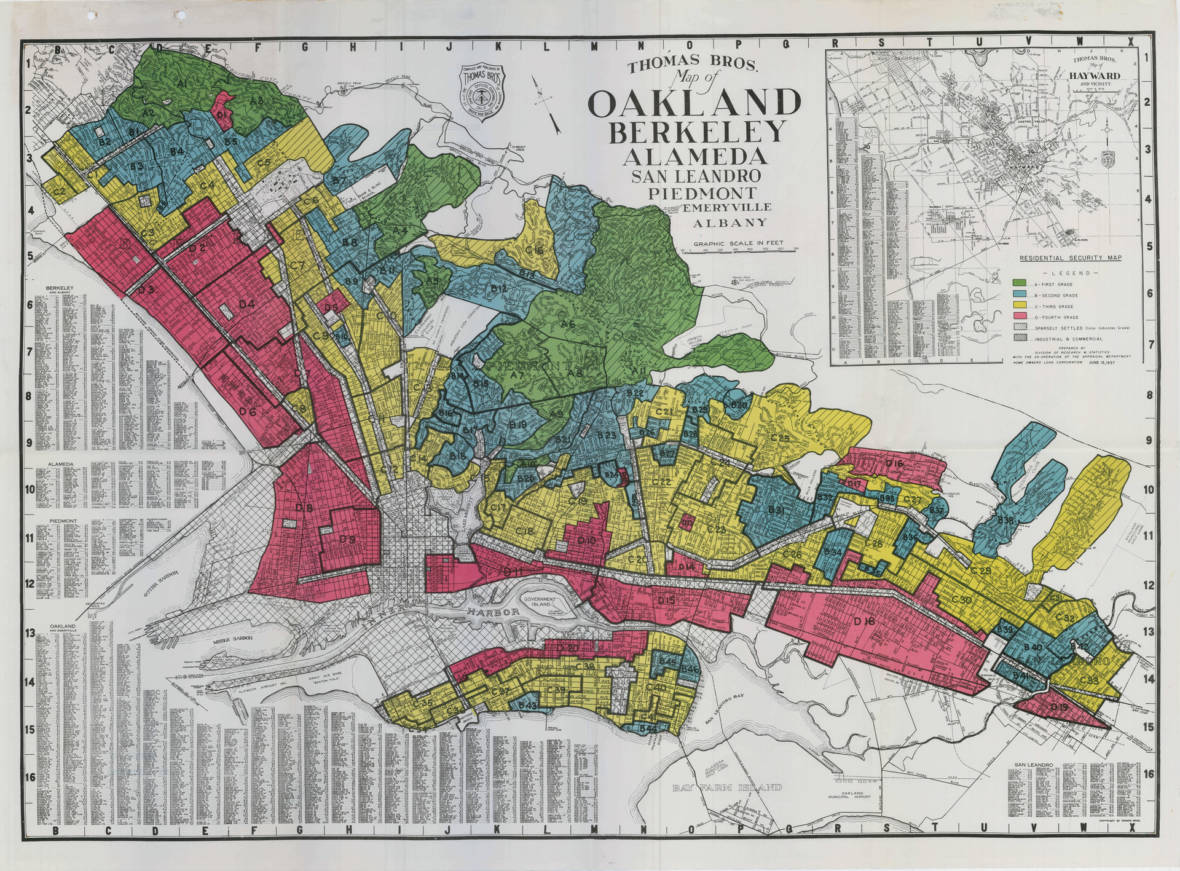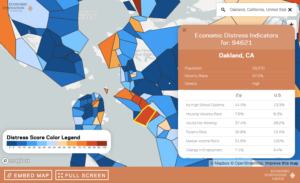Is a zip code really just a number?

Lauren Glasby was a 2018 Beneficial Banking Fellow based in Oakland, CA.
This past summer, I was fortunate enough to work on diversity, equity, and inclusion, a topic I’m very passionate about, with Beneficial State Foundation as part of their incredible fellowship program. The goal of my research was to highlight the structural barriers that disadvantage certain groups of people and to determine which practices Beneficial State could adopt to help reduce those barriers.
Many of us don’t think about how the zip code in which we grew up has influenced the trajectory of our lives—unless we come from zip codes where systemic barriers often leave people trapped in a vicious cycle of poverty.
Children born in East Oakland, CA have a life expectancy 12 years lower than those born in Piedmont, CA. The areas are less than 2 miles away from each other. Oakland Unified School District reported having about 1,600 unhoused students in its schools during the 2016-17 school year, whereas Piedmont High reported having zero students facing housing insecurity. Residents of Oakland, CA have a median household income of $51,000. In Piedmont (a semi-suburban city that is entirely surrounded by the city of Oakland) the median household income is more than $130,000. How can we explain these differences? By examining the history of redlining in the East Bay Area.
African American and Latinx people make up about 28% and 25% of Oakland’s population, respectively, while 34% of the population is white. On the other hand, white people in Piedmont consist of over 74% of the population, whereas less than 6% of Piedmont’s residents are Black or Latinx. Race clearly plays a role here. Structural barriers initially designed to disadvantage African Americans and other people of color in the Bay Area (and across the United States) have created lasting inequities. Today, for every dollar of wealth owned by a white family, Asian American families only have $0.81 on average, and for Latinx and Black families it’s $0.07 and less than $0.06, respectively.
As a result, African Americans and other people of color are forced into lower-income neighborhoods with less access to a quality education, healthy food, and opportunities for upward mobility. They also have disparate access to stable housing and a proper living wage. Housing is a human right, but many people in Oakland (and in all the other areas where Beneficial State Bank operates) are facing a housing crisis. This explains the number of students in Oakland Unified School District who experience housing insecurity. Additionally, low wages aggravate income inequality and increase public spending on assistance programs for low-income communities.

To make matters worse, these structurally disadvantaged groups are often unbanked or underbanked. Many banks still employ discriminatory lending practices, such as higher fees and interest rates in communities of color, or refuse to bank these communities at all. These practices make it even harder for African Americans and other people of color to overcome structural barriers, thus inflaming inequities.
Beneficial State Bank and Foundation are working to address some of these barriers by providing access to financial services for all communities, especially traditionally under-served people. One way Beneficial State works toward changing this landscape is by providing loans for affordable housing units. To date, Beneficial State Bank has loaned more than $316 million to support the creation or preservation of 8,331 affordable housing units. The development of affordable housing not only creates benefits for the families living in them, but also the economy. These new units create jobs, both during their creation and after for local businesses. Thus, the positive effects are long-lasting.
We have a lot of work to do to address the injustices imposed upon African Americans and other communities of color in this country, and affordable housing is just one way to help. We must be aware of this history, the systems that fuel racial inequalities, and the actions we can take to create equitable change.
This blog post reflects the author’s personal views and opinions, and does not represent the views and opinions of Beneficial State Bank and/or Beneficial State Foundation.


